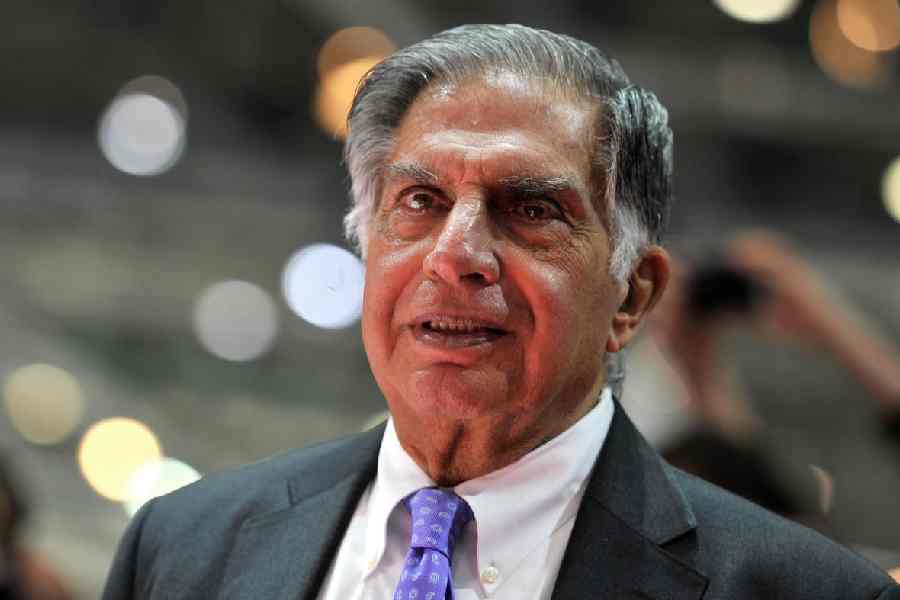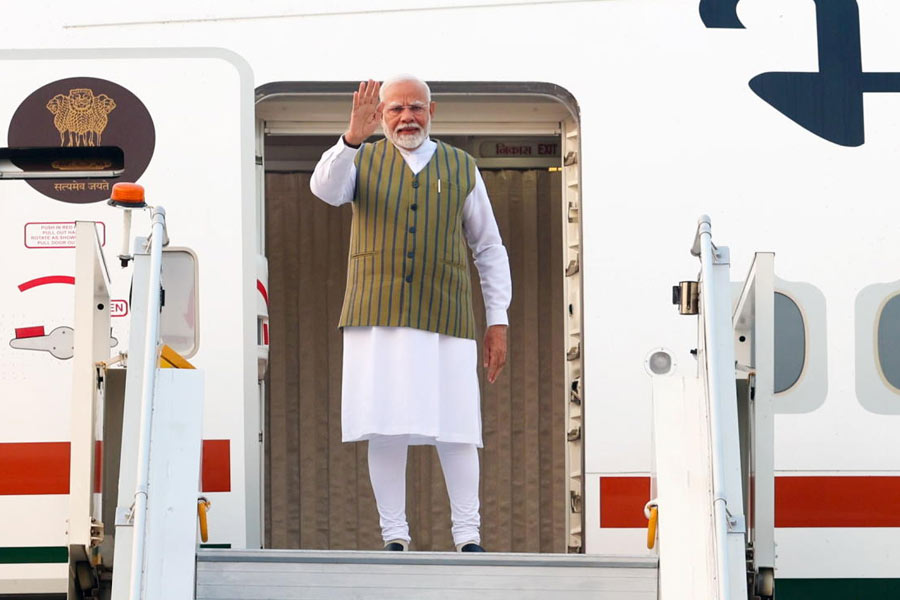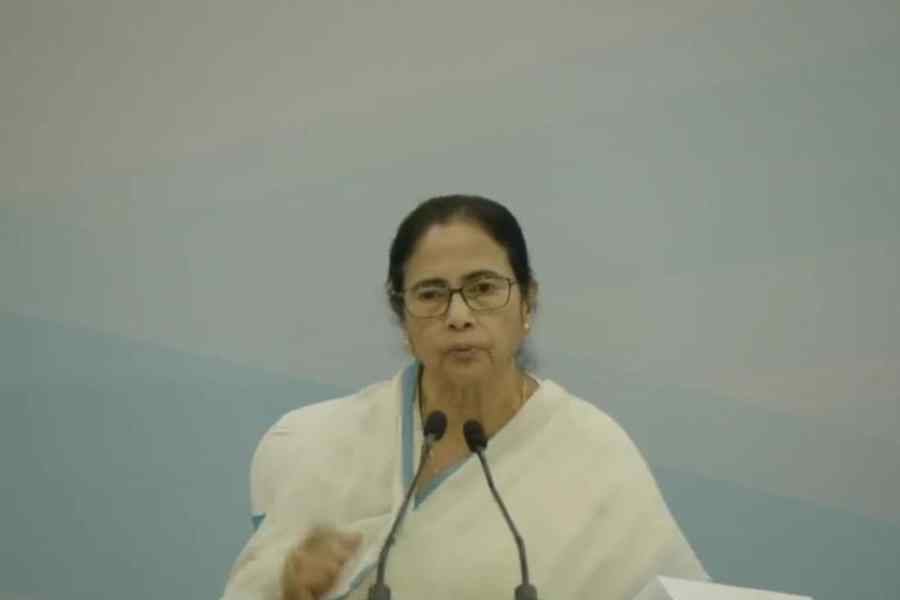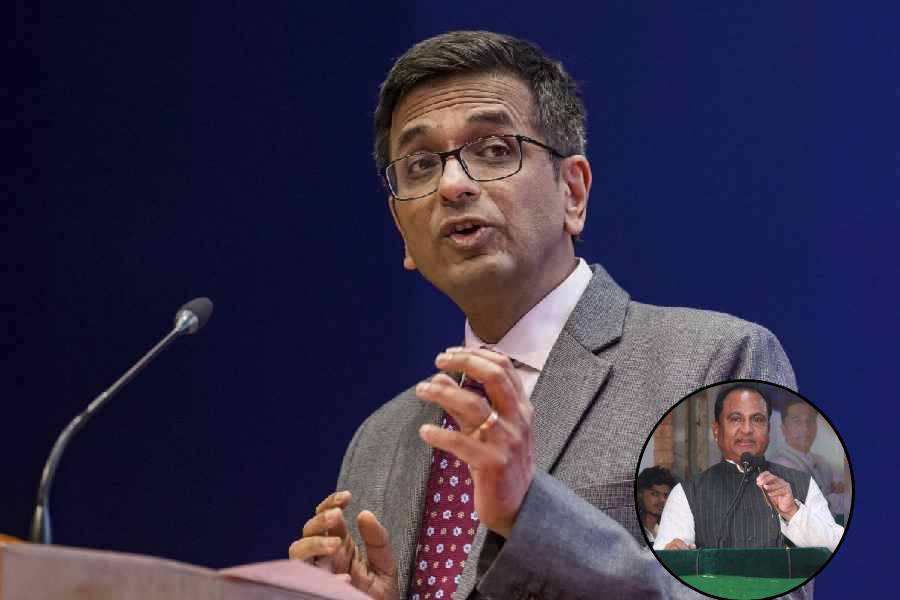In its 156-year history, the $165 billion Tata group has often found itself embroiled in situations that severely tested the ethical foundations that were laid by its founder Jamsetji Nusserwanji Tata. Its reputation for rectitude and integrity has never crumbled in the face of the innumerous challenges that its sterling leaders grappled with as they picked their way through a maze of regulations, refusing to kowtow to corrupt people in positions of authority.
Back in the late nineties, Ratan Tata was thrown into an ethical quandary when the Tatas flirted with the idea of acquiring Air India, the state-owned airline that was originally launched by JRD Tata on June 8, 1948 with three Lockheed Constellations. Nehruvian socialism kicked in soon after and Parliament passed the Air Corporations Act that formed two corporations — Indian Airlines and Air India International — in to which all the private airlines were subsumed.
Even though the government nationalised the airline in 1953, JRD Tata stayed on as chairman for 45 years till he was unceremoniously dumped by Prime Minister Morarji Desai in January 1978. The Tatas had always nursed the hope that one day they would return to the skies some day — and, if the opportunity arose, possibly take back Air India.
A glimmer of hope arose sometime in 1997 when the Tatas proposed to team up with Singapore Airlines to float an airline. By then, Air India was already in a spot of trouble. The problem was that the government had crafted a policy in April 1997 that barred foreign airlines from holding a stake in any Indian carrier.
The Tatas lobbied hard for a change in the policy but it did not work. Many years later, Ratan Tata dropped a bombshell when he said he had been button holed by another industrialist on a flight and advised to offer a ₹15 crore bribe to stand any chance of getting his proposal passed.
Ratan Tata recalled that conversation. The unnamed industrialist had told him: “Why don’t you pay the minister?… He wants ₹15 crore… you people want the airline, don’t you? You want the airline, pay ₹15 crore.”
Tata’s reply was legendary. Corruption, he said, “has to be self-regulating… You will never understand that; we just don’t do that (bribe ministers)”.
The irony is that Air India did eventually return to the Tata stable in October 2021, nearly 68 years since it was nationalised. The national carrier had been on the block since June 2017.
Never a man to gloat or celebrate a success, his tweet in response to the Narendra Modi government’s decision to pick the Tata group’s bid for the airline was quiet, and matter of fact — almost laconic: “Welcome back, Air India.”
Man of his word
Back in the day, businessmen measured a prospective partner’s worth by his ability to come good on a promise. You struck a deal and shook hands: trust was built when a partner honoured his obligations in the face of adversity.
For Ratan Tata, that crunch moment came in April 2014 when Japanese telecom giant NTT DoCoMo decided to exercise an option to sell the 26.5 per cent it had acquired in Tata Teleservices Ltd in November 2009 for ₹12,700 crore at ₹117 per share.
To sweeten the deal, Ratan Tata had offered to find a buyer for DoCoMo’s shares in TTSL five years down the line if the company failed to attain certain pre-agreed performance milestones. Under the terms of a shareholders’ agreement, the Tatas were obligated to find a buyer or buyers for DoCoMo’s shares in TTSL at a price that would be the higher of (a) the fair value of those shares as of March 31, 2014, or (b) 50 per cent of the price at which DoCoMo purchased its shares.
The real rumpus began when DoCoMo sent a notice on July 7, 2014 asking the Tatas to find a buyer for their stake in TTSL — and complete the sale by December 3. The problem was that the new Tata group chairman, Cyrus Mistry, refused to honour the promise.
The dispute went into international arbitration and the Tatas were asked to pay $1.17 billion for the sale of shares, interest at 3.5 per cent amounting to another $65 million, arbitration costs of £119,012 and DoCoMo’s legal costs of Japanese Yen 1.07 billion — working out to a tidy sum of ₹8,730.59 crore.
Mistry would infuriate Rata Tata by digging in his heels and arguing that the payout promise violated India’s public policy and Reserve Bank of India regulations since India did not recognise such put options in private shareholder agreements. This was one of the festering issues in the eventual dust-up that led to Cyrus Mistry’s exit from the group.
In the end, the Delhi High Court dismissed the RBI intervention and said the arbitration award “remains enforceable in India and shall operate as a deemed decree of this Court.” Eventually, Ratan Tata had his way — and redeemed his promise.
He passionately believed that it was the decent thing to do even if it meant forking out a huge sum of money. He could have wriggled out of the commitment especially after the RBI tried to intervene in the famous legal battle. But he chose not to duck a sworn obligation.
The case forced the RBI to reconsider its stand and interpretation of its extant rules. In a letter to the ministry of finance on December 22, 2014, the RBI said: “We observe that the proposed structure (of the Tata DoCoMo shareholders’ agreement) is not in line with the extant provisions as the fair value of the shares is ₹23.34 per share (which worked out to about 20 per cent of the price that DoCoMo had paid in 2009).
“However, the larger issue here is of a fair commitment in the contracts in relation to an investment and a downside protection of an investment, rather than an assured return. Besides our strategic relationship with Japan in recent times in relation to FDI flows is also a matter to be kept in view. In view of this, we are inclined to accept the proposal and in future, in all such cases, (a) similar principle shall be applied.”
The RBI’s initial opposition to the payout to DoCoMo was shaped by its interpretation that an obligation to sell DoCoMo’s stake at a minimum of 50 per cent of the amount at which the shares were originally bought could be construed as an “assured return on investment” — a proposition that the regulator found unpalatable because it frowns at such a concept. But when it changed its perspective — and started to read the proviso in the Tata-DoCoMo shareholders’ agreement as an attempt to provide “downside protection” to a foreign investor – it no longer had any qualms about agreeing to the payout. A semantic quibble can often break a gridlock over a seemingly intractable issue.










